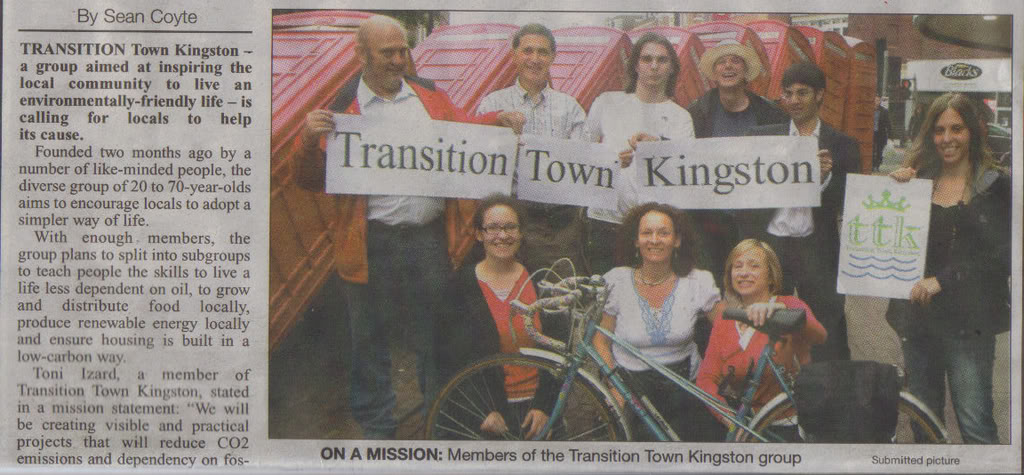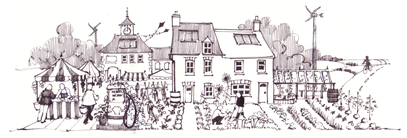Last month I discussed some of the national and international developments that are shaping our future, but in spite of the ongoing climate talks in Poznan, today I’d like to focus on the importance of local-level action.
Amidst all the focus on global climate agreements it’s easy to forget that agreeing a tightening global cap on emissions is not a solution in itself – such a cap would be meaningless without on-the-ground solutions and lifestyle changes at the local and individual levels. This is why I see the tremendously rapid spread of the Transition movement as such a hopeful sign.
It is only two years ago that Rob Hopkins was explaining this new concept to around twenty of us down at Schumacher College and wondering where it might go, yet here we are in 2008 with 120 official Transition initiatives around the world and almost 1,000 more who have made contact to say that they are considering getting involved.
Here in Kingston the first meeting to discuss the idea was held in May this year, and we became an official Transition initiative in August. We are now holding regular events and have six action groups working to raise awareness of climate change, peak oil and the Transition movement in our local community.
For me personally the sense of being supported as a member of the team is invaluable. I will admit to an unfortunate predisposition to take projects away and work on them on my own, and regular meetings with my fellow Transitioners provide a vital antidote.

This week we marked six months since the genesis of Transition Town Kingston (TTK) with a talk by Dr. David Fleming on the theme of ‘Transition Carnival’, discussing his impressive research on the critical importance of wild parties to the development of resilient communities!
Our efforts to heed his advice may have been less raucous than his ideal, but his wonderful talk brought home the sense that the significance of the Transition movement runs deeper than its essential role in a sufficient response to ‘Peak Climate’ or its apparent power to strengthen community ties – deeper even than the fine excuse it provides for good times.
The true test of its influence will lie in its contribution to shifting the cultural stories which have led us to this Last Chance Saloon. As I emphasise in my forthcoming book The Transition Timeline, our individual and collective decisions about what is important to us will determine our future. I hope that the legacy of the Transition movement will be to play its part in empowering us to choose anew. I am fortunate and proud to be a part of it.




0 Comments